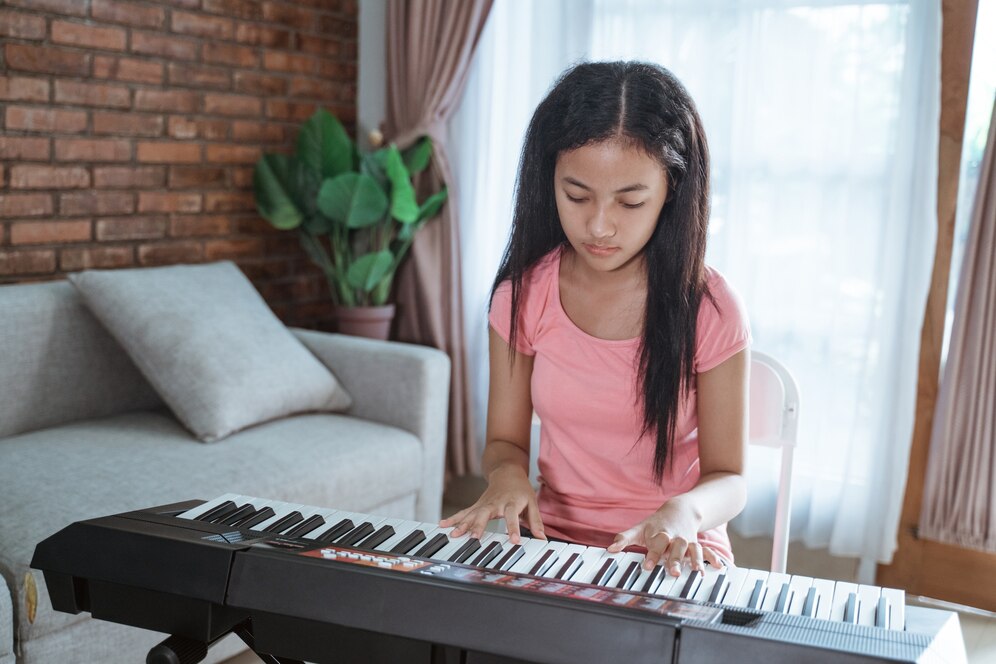Self-Taught Piano vs. Piano Lessons: Which Is the Best Way to Learn?
Piano learning is an exciting journey. Everyone learns differently. When you decide to learn piano first question that comes to mind is, should you teach yourself or go for piano lessons? Some choose to teach themselves or take formal lessons. Both methods have advantages. Which is best depends on your goals, learning style, and resources. In this article, we will explore the differences between self-taught and piano lessons so that you can find it easy to choose which path to take.
Self-Taught Piano
Self-taught piano means learning piano on your own without any formal lessons or a teacher. People who teach themselves can start by watching online tutorials, using apps, and using free resources. In the beginning, it is challenging to understand the notes, rhythm, and hand movements. If you are someone who loves to try or explore new things, teaching yourself can be a good option for you.
Advantages Of Learning Piano At Your Own
Economical
One of the advantages of self-taught piano is cost savings. You can start learning with free resources available online, or purchase affordable books or apps.
Control Over Your Learning
In self-learning, you can have full control over your learning. You can decide the pace of lessons, take extra time to work on, and choose what to focus on. In self-taught piano, you have freedom in your choices and interests.
Learn At Your Speed
Self-teaching allows you to learn at your own pace. If you find it difficult to understand any concept, you can take as much time as you need without any rush, and you can move ahead if you grasp the concept quickly.
Access a Variety Of Resources
With the help of the internet, it has become easy to access a variety of resources at your fingertips. Several tutorials, blogs, and apps can support you in your journey.
Piano Lessons
Piano lessons are the formal approach to piano learning. There are structured instructions in piano lessons that cover topics like notes, scales, chords, techniques, etc. You get guidance from the piano teacher. There are different types of lessons offered, like piano lessons for adults, lessons for beginners, and lessons for kids. These lessons are tailored to different levels and skills.
Advantages Of Piano Lessons
Formal Learning
Piano lessons from a teacher offer structure and expert guidance. You start with basic concepts and move forward to advanced levels progressively. It helps to build a solid foundation to become a skilled pianist.
Personalized Feedback
When you enroll in piano class, you will get feedback from your teacher on your progress. They can identify your mistakes, correct them, and give you improvement tips. This will help you to progress in your journey.
Expert Guidance
With piano lessons, you get guidance from an experienced teacher. You will be able to learn piano professionally, they can guide you with proper techniques, postures, hand movements, etc. Your progress is evaluated, and mistakes are rectified.
Motivation And Encouragement
You need encouragement and motivation to keep going. A teacher will help you set goals and motivate you in your achievements. This makes your journey fulfilling and enjoyable. You inspire your fellow mates.
Which Is Right For You?
Both self-teaching and piano lessons have their benefits. But what is best for you depends on your personal goals and preferences and goals.
- If you want proper guidance, feedback, and want to learn professionally, then piano lessons will be the best choice for you.
- If you prefer freedom and flexibility, then self-teaching could be a great option.
So it can be concluded that the best way is that which works for you, and if you are not sure about the option to choose, you can try a combination of both. It will give you the benefits of both. Whether you choose piano lessons or self-teaching taught being consistent is the key to success.




